FrOSCon 2022 - back to normal?
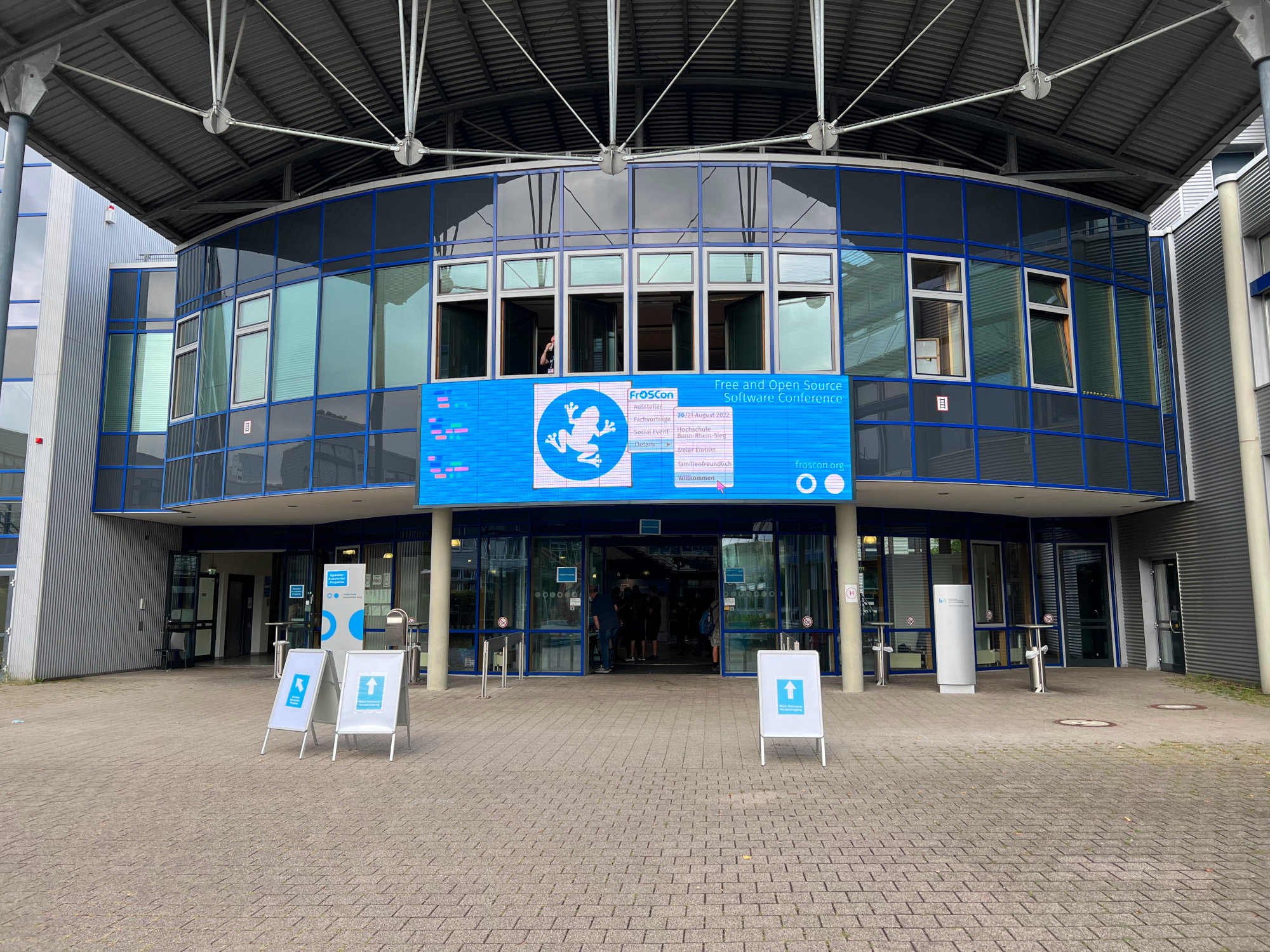
Last weekend on 20/21.08.2022 it was finally time - the 17th FrOSCon conference in presence took place. After two years of pandemic online events, lectures and workshops took place again at the Bonn-Rhein-Sieg University of Applied Sciences in Sankt Augustin. Exhibitor booths and the obligatory social event on Saturday evening invited to networking and exchange - which was actively used by the 750 visitors.
Talks
The lecture program was - as usual - extensive. Visitors could choose between 70 workshops and lectures - and, as usual, free of charge. While I was usually present only one day in the last years, this year's program was significantly more interesting for me, so I attended lectures on both days. There were some very interesting presentations and so I still have to watch one or the other presentation afterwards, as they were running in parallel.
Henning Rohde reported in his presentation Patterns & Anti-Patterns bei der Automatisierung von Ansible (📽️) about typical Dos and Don'ts when using Ansible. In addition to some typical beginner mistakes, more complex looping constructs as well as advanced topics, such as YAML templates, were shown.
My personal highlight was the presentation Der eigene digitale (offline) Sprachassistent (📽️) by Jürgen Pabel. The latter reported on various iterations of his self-built voice assistant in HAL9000 design, which is powered by open source software. Jürgen did not only talk about the hardware selection but also about software frameworks and experiments. For me the talk was interesting in that I reported on the same topic (📽️) myself 2 years ago, I am currently working on a new iteration of my voice assistant and looking for inspiration. The 3D-printed HAL9000 case shown was created with a lot of attention to detail, and as a Stanley Kubrick fan, I was immediately inspired.
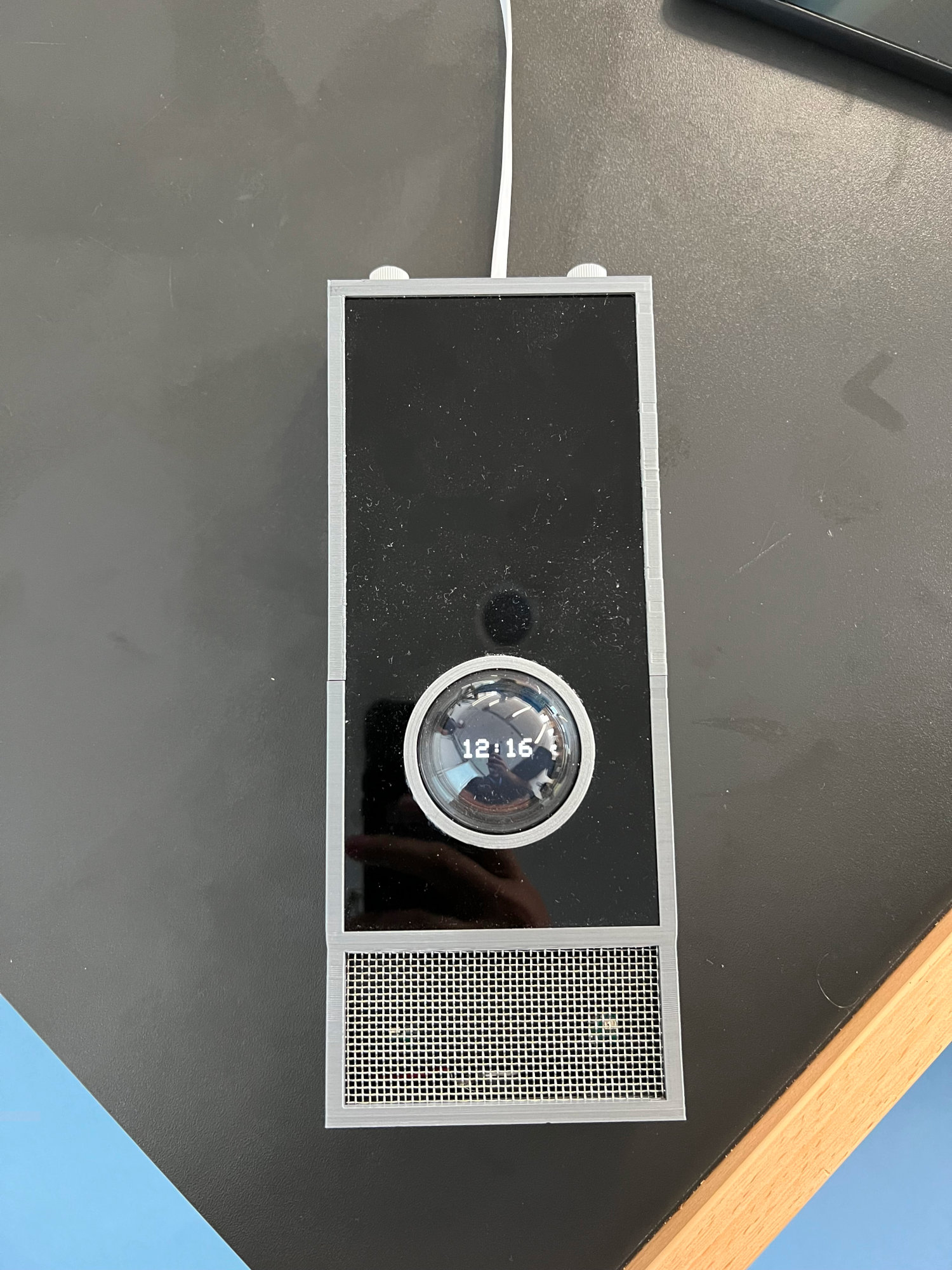
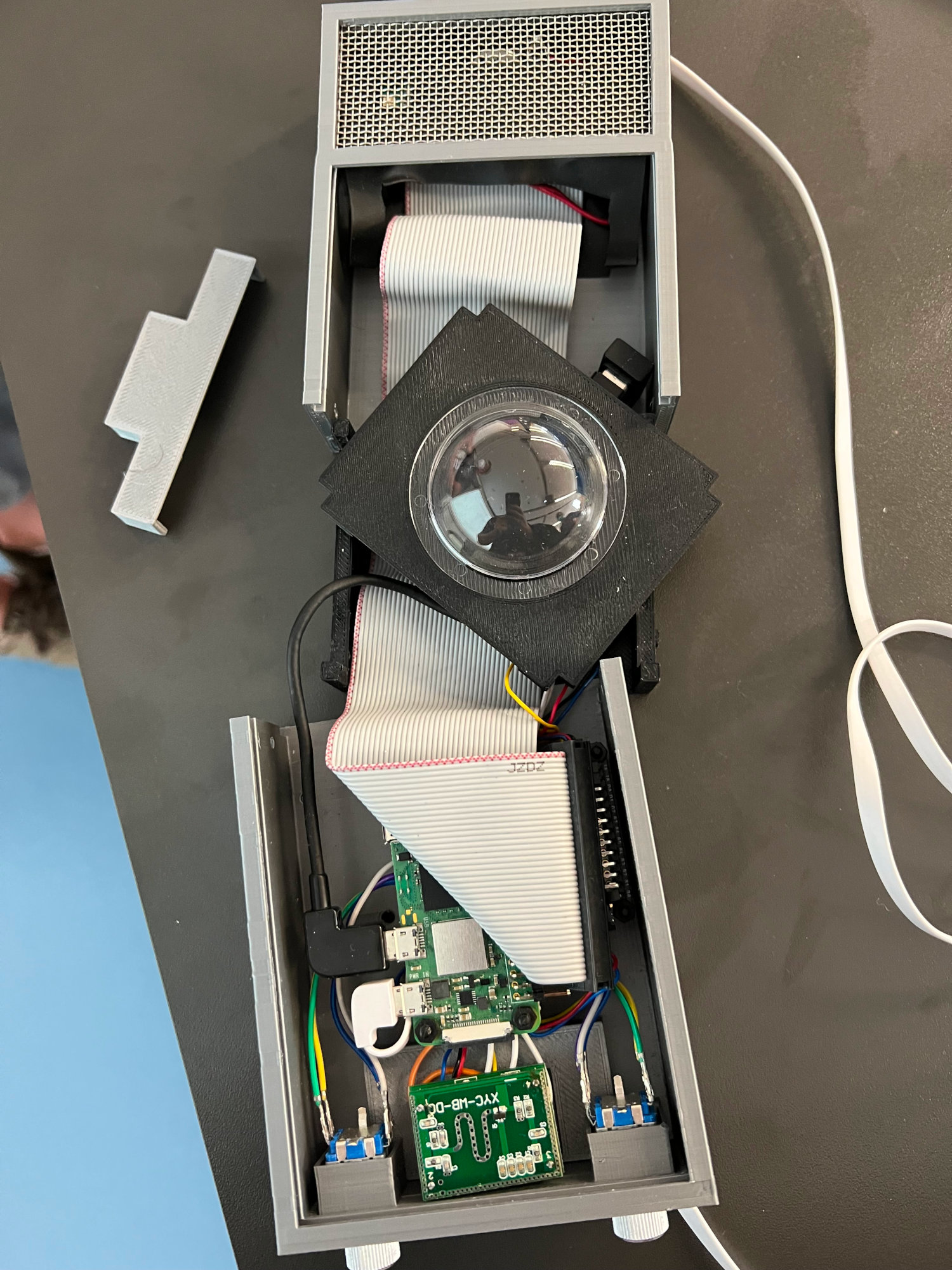
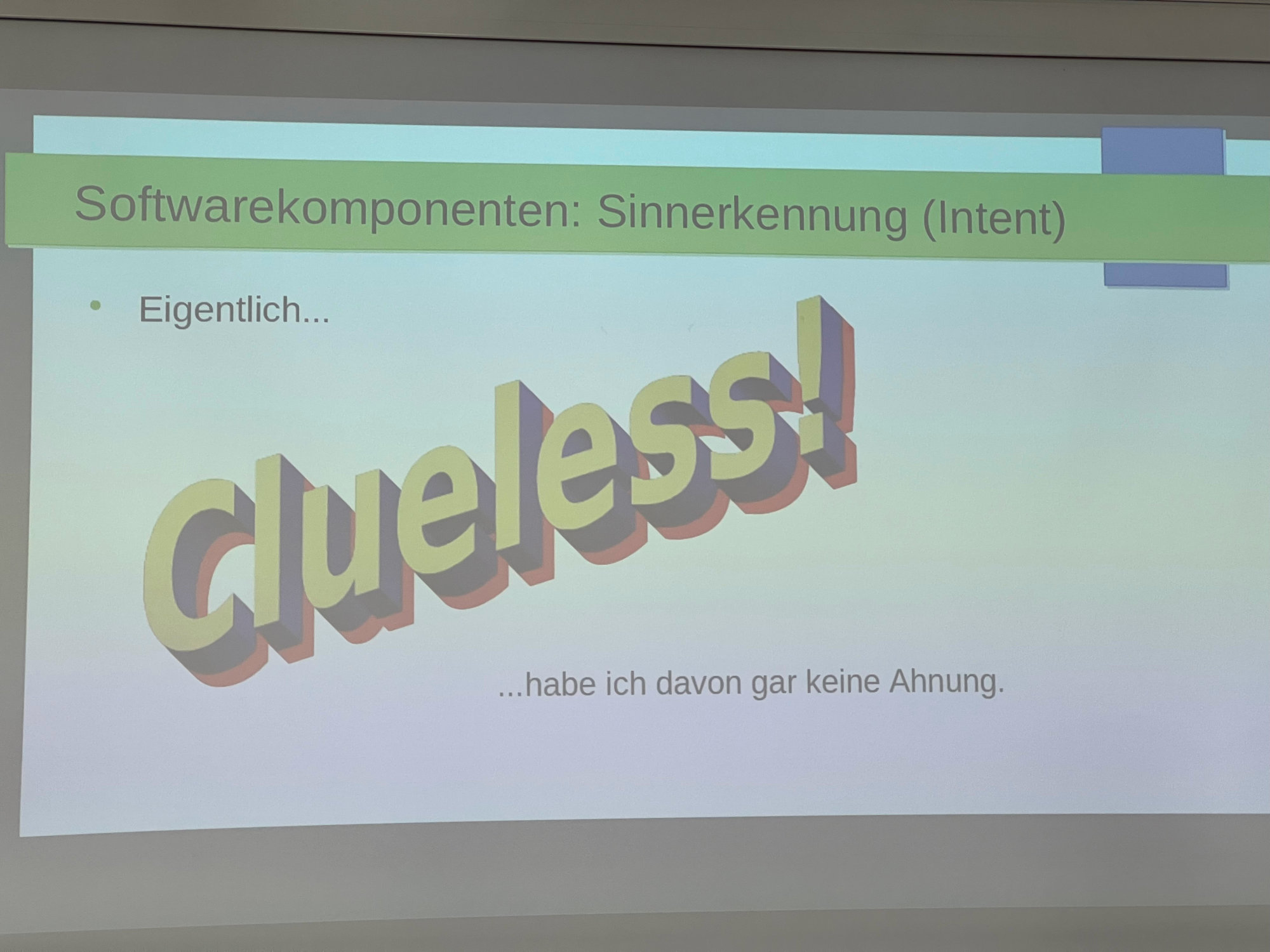
Sarah Julia Kriesch reported in her presentation Zusammenarbeit mit Open Source Projekten (📽️) about her personal experiences in various OSS projects. She also highlighted common tools as well as pitfalls and best practices when working with OSS projects.
In the presentation CI First (📽️), Erol Ülükmen summarized challenges and pitfalls in the development of the client management software opsi. In this context it was also shown how these challenges are dealt with - for example with extensive and fully automated testing pipelines.
Open source news of the past months were summarized in the talk Das Open-Source Jahr 2022 (📽️) in a very entertaining and funny way by Oli and Michael from the Open Source Couch podcast.
I also found the presentation Monitoring wie es 2022 sein sollte (📽️) by Daniel Ziegler very interesting. He showed the monitoring tool openITCOCKPIT, which I have not paid much attention to so far. After 4 major iterations, it has a considerable range of functions and is an alternative to Nagios or Icinga2 due to its simple and secure onboarding.
I myself was allowed to present in the talk Paketformate der Zukunft? (📽️) about the alternative package managers AppImage, Flatpak and Snapcraft.
Exhibitors
I found the booth of TUXEDO Computers particularly interesting - they showed newly released and soon to be released Linux notebooks. The recently released Stellaris 15 Gen 4 with optional external water cooling has already been reported on various websites, so I was curious to see how the device would perform in the test.
Christian from TUXEDO took an hour to demonstrate numerous technical details to me (thanks again!) and I have to say that the device is quite impressive. It is certainly debatable whether the answer to suboptimal Intel SoC designs with thermal problems has to be water cooling in a mobile device - but those who rely on maximum CPU and GPU power currently cannot get around these devices (partly because of the availability of conceivable alternatives). In various benchmark tests, the water cooling was able to cool both CPU and GPU by an additional 30° degrees - and that with conventional distilled water. The water cooling is located in an external case that can supply the notebook with power via passthrough, and the radiator properties are controlled via the specially developed TUXEDO Control Center and Bluetooth.
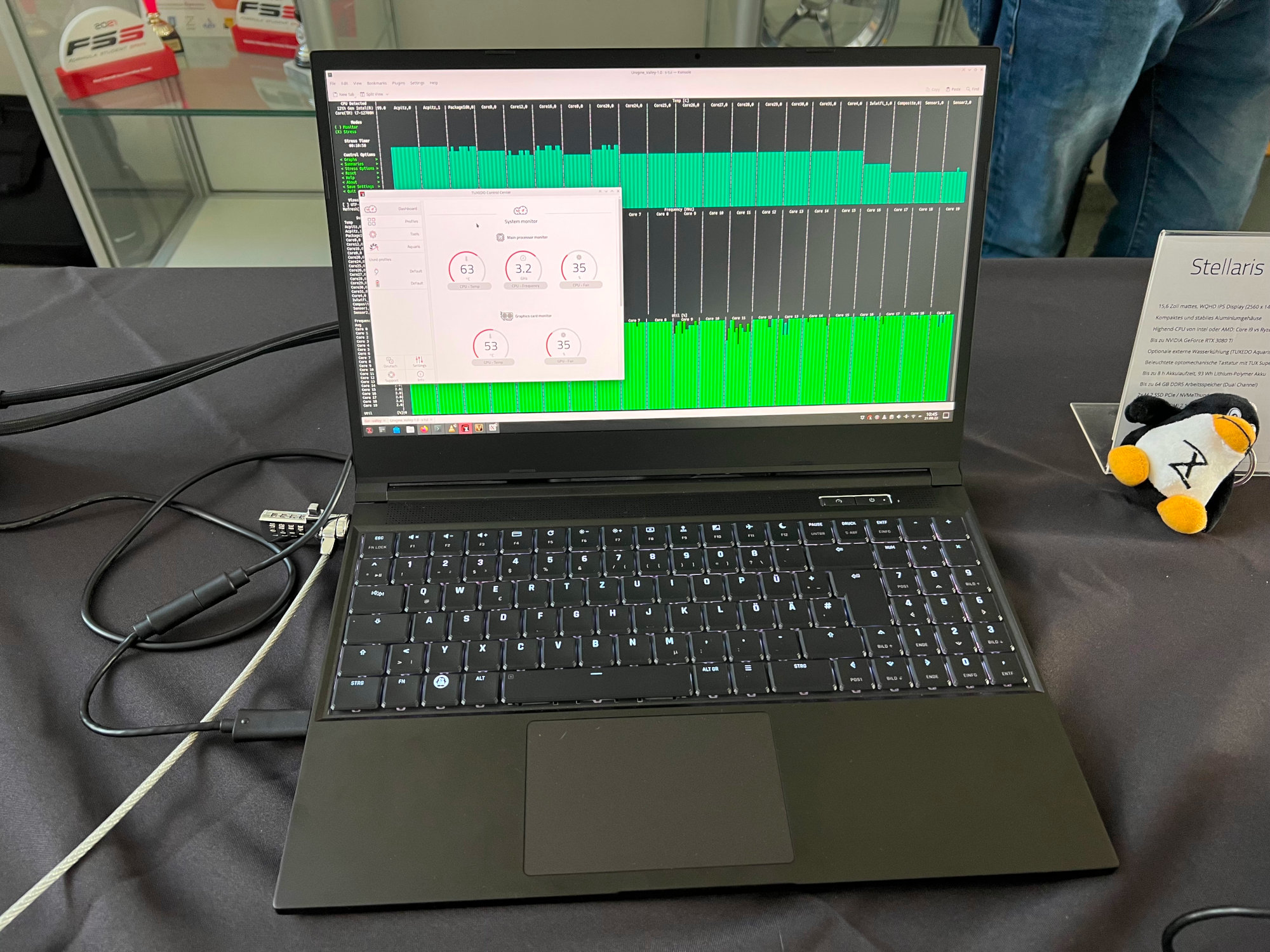
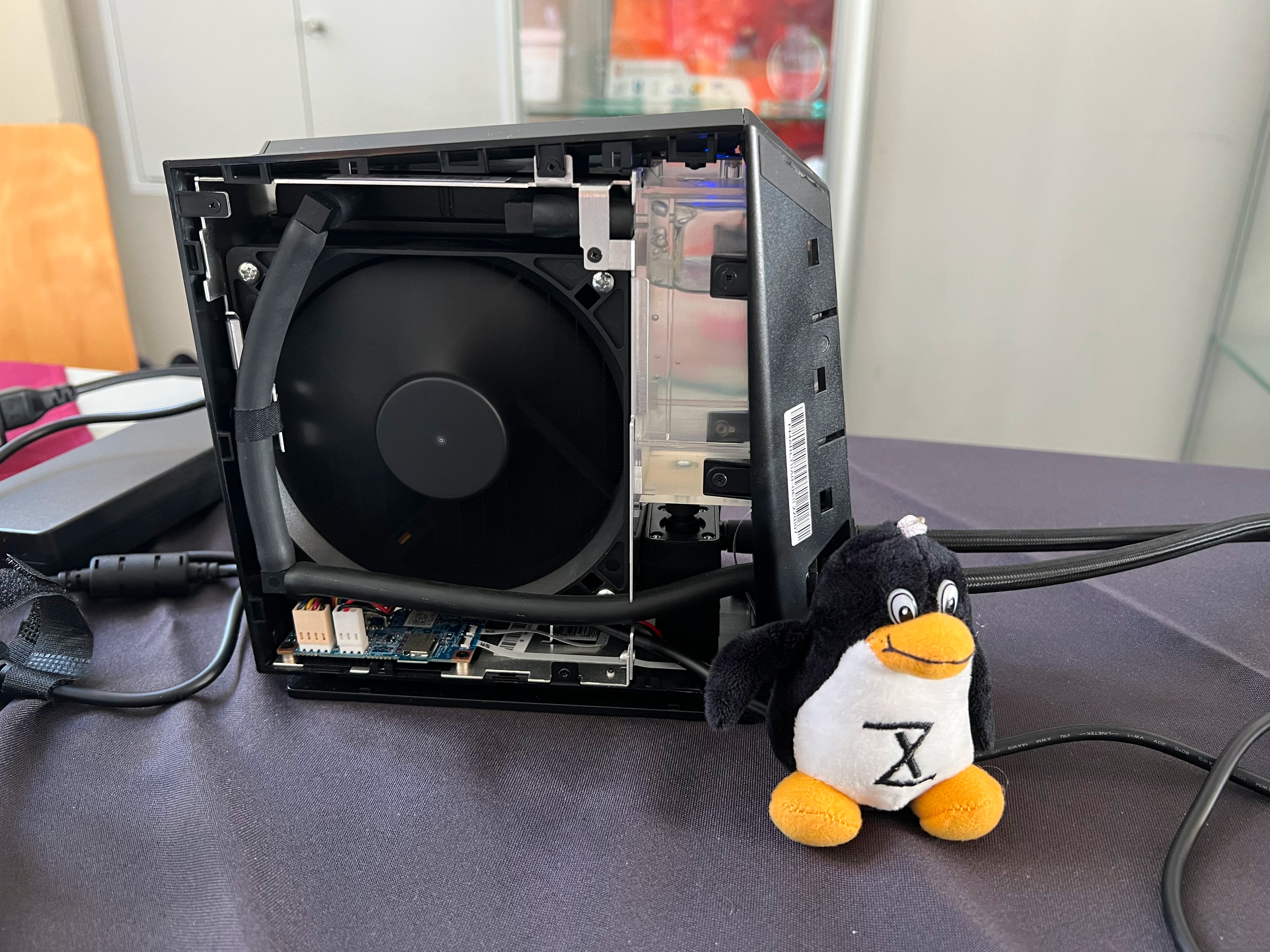
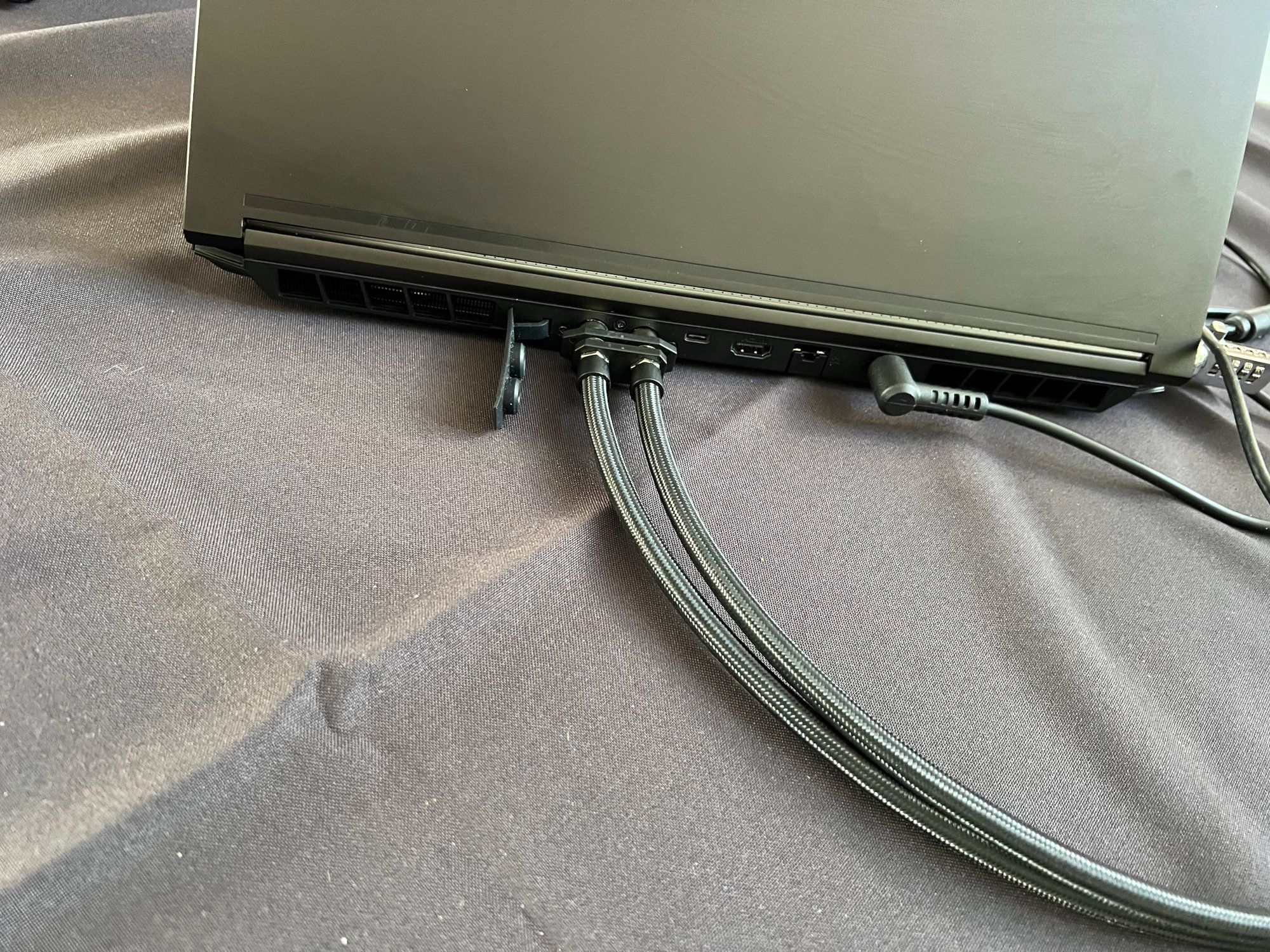
I found the soon-to-be-released InfinityBook Pro 14 Gen 7 no less interesting. Admittedly, I have not paid much attention to TUXEDO so far, since I did not find the designs appealing, had doubts about the quality and workmanship, and also do not know anyone in my direct environment with such a device - completely unjustified, as it now turned out.
The new 14-inch device comes with the 12th Intel generation (+liquid metal heat sink) and a generous 3K display with very narrow display edges. The case is strongly reminiscent of Apple's unibody design, but has a lower weight (1.3 kg) and significantly lower price thanks to an intelligent magnesium/plastic mix. The device makes a solid impression, has a big touchpad and the keyboard also feels pleasant. In times of increasingly inferior ThinkPad models, the InfinityBook Pro thus becomes a real alternative for Linux users.
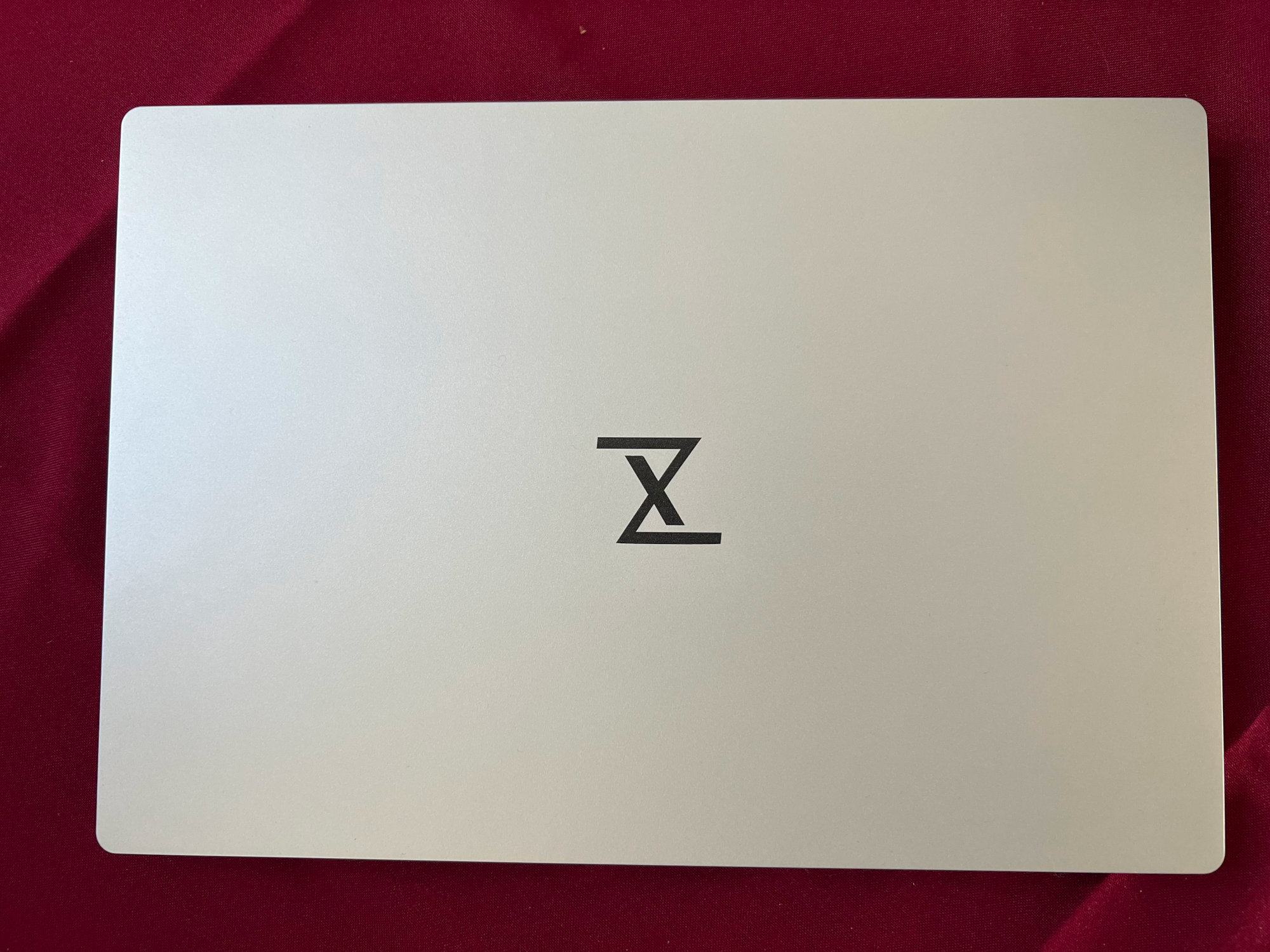
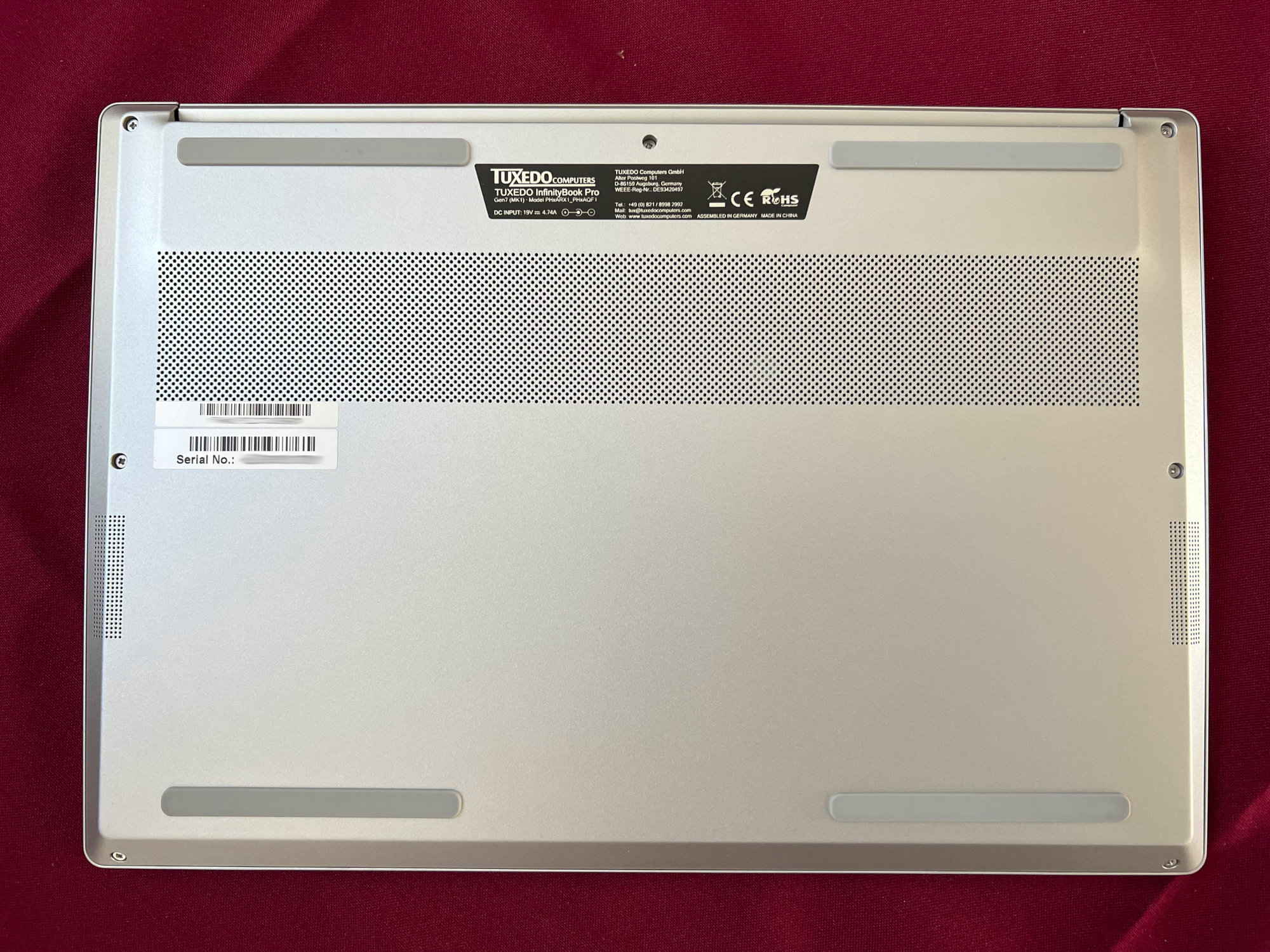
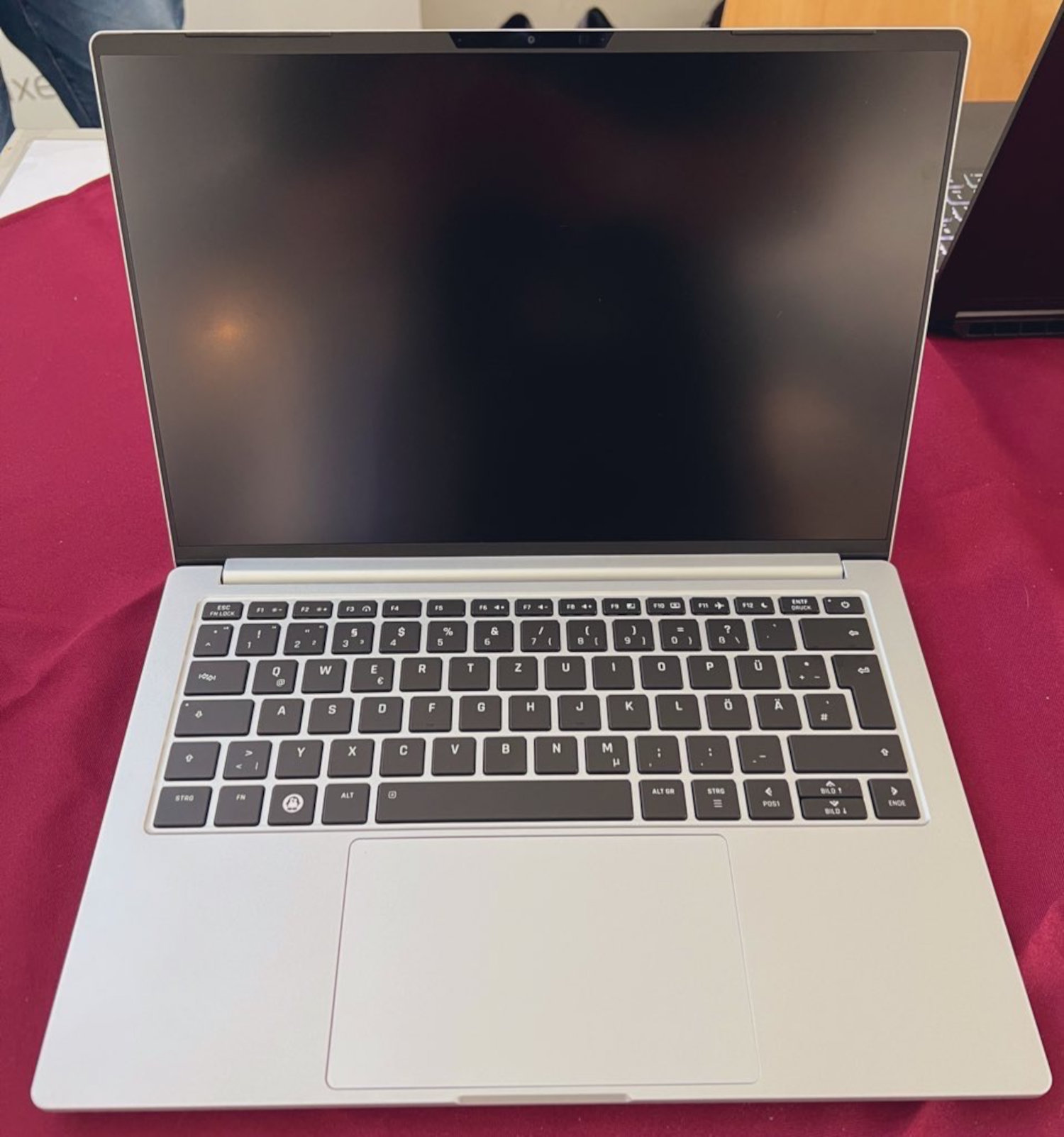
Conclusion
After two years of purely online events, it was good to be able to attend a "normal" conference again. As a presenter, it was nice not to "present headlessly" anymore, but to get direct feedback from the participants. The social event was a lot of fun - so I saw a lot of old faces and at least as many new ones, which I personally missed a lot. I really liked the selection of topics this year - there were (for understandable reasons) fewer visitors than in previous years, but that will certainly change next year. At least I'm already looking forward to the 18th iteration of FrOSCon. 🙂